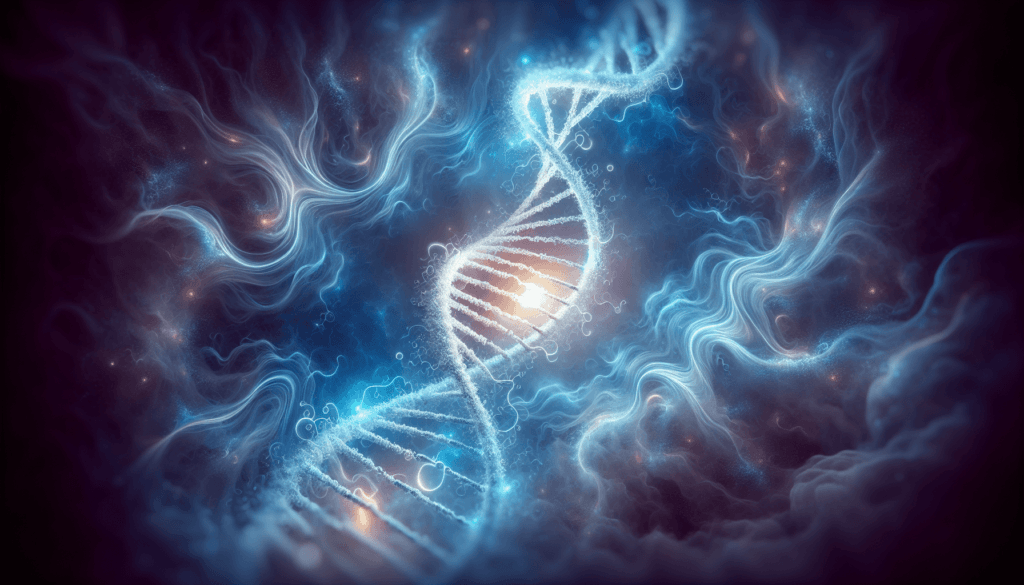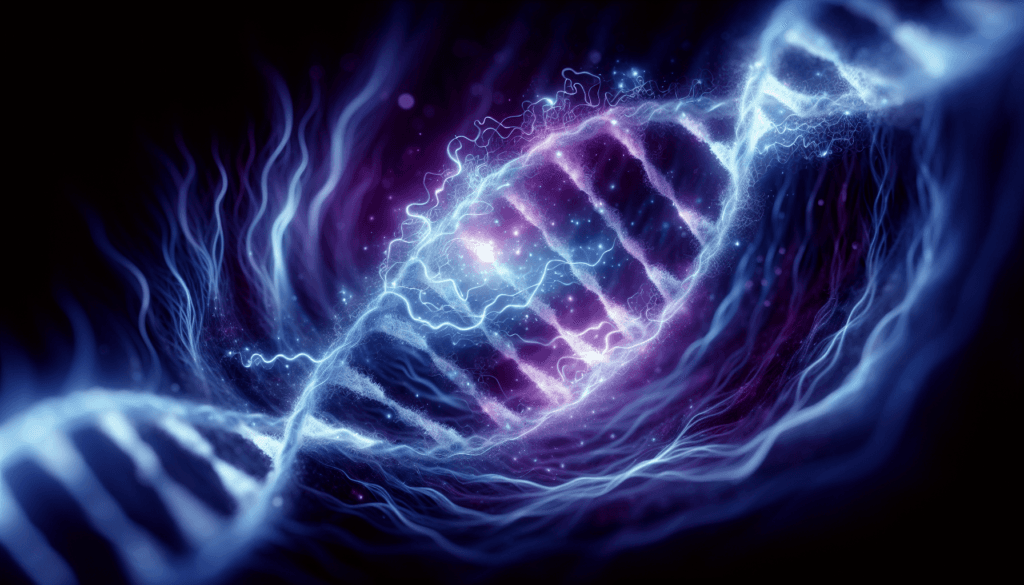Have you ever wondered what makes you feel happy, sad, excited, or even calm? How about when you realize your energy levels fluctuate or your appetite changes seemingly without reason? Well, behind these and many other everyday experiences lie powerful chemical messengers known as hormones. These tiny yet mighty substances work tirelessly, influencing your mood, growth, metabolism, and even your sleep. But what exactly are hormones, and why do they hold such power over our lives?
Understanding Hormones: The Basics
Hormones are biochemical substances produced in the body that play a crucial role in regulating physiological activities. They are secreted by various endocrine glands and travel through the bloodstream to target organs and tissues, exerting their influence to maintain balance and harmony. Although hormones might seem mysterious, understanding their basic functions can give you insight into the complex symphony occurring within.
What Are Hormones?
Table of Contents
In essence, hormones are the body’s chemical messengers. They are synthesized by endocrine glands such as the pituitary, thyroid, adrenal glands, and pancreas, among others. Once released into the bloodstream, hormones communicate with specific cells, tissues, or organs to trigger responses or regulate physiological processes. Think of hormones as the conductors of an orchestra, directing different sections to create a harmonious and functional performance.
The Role of the Endocrine System
Have you ever heard of the endocrine system? It’s the sophisticated network responsible for hormone production and regulation. This system consists of glands distributed throughout the body, each with its specific role. The pituitary gland in your brain, for instance, is often dubbed the “master gland” because it oversees other glands like the thyroid and adrenal glands. The coordination between these glands ensures that essential bodily processes like growth, metabolism, and stress response occur seamlessly.
How Hormones Travel and Communicate
Hormones have a long-reaching impact, and part of their magic lies in their ability to travel through the bloodstream. Once a gland releases a hormone, it embarks on a journey to locate a specific receptor on a target cell. Much like a lock and key, the hormone binds to the receptor, sending a signal that prompts the cell to perform a designated function.
The Multifaceted Benefits of Hormones
Understanding the various roles that hormones play can be eye-opening, and it might surprise you how much they affect your daily life. From regulating mood and energy levels to influencing growth and reproductive health, hormones are indispensable.
Emotional Well-being and Mood Regulation
You might associate serotonin with mood stabilization and happiness. Produced primarily in the gut, serotonin helps regulate your mood, appetite, and even the sleep-wake cycle. Ever felt that sudden rush of happiness or relaxation? That could be endorphins, hormones released during exercise or moments of stress, designed to help ease stress and promote a sense of well-being.
Metabolism and Energy Levels
Leptin and ghrelin are two hormones you may want to know about if you’re curious about appetite and weight management. Leptin is known for its role in suppressing hunger and regulating energy balance. Meanwhile, ghrelin does the opposite, stimulating appetite to signal that it’s time to eat. These two hormones work together to help maintain a healthy energy balance and body weight.
Growth and Development
Remember your teenage years, when growth spurts seemed to happen overnight? You might want to thank growth hormones for that. Human Growth Hormone (HGH) is pivotal during childhood and adolescence, supporting increases in height, muscle mass, and overall development.
Stress Response and Adaptation
Wouldn’t it be nice to navigate stressful situations with ease? Cortisol, produced by your adrenal glands, is often called the “stress hormone.” It plays a vital role in the fight-or-flight response, helping your body react quickly to stressors. While this hormone is crucial in the short term, chronic elevation can lead to negative health effects, so balance is key.

Different Hormones and Their Functions
The human body is a complex organism, and its proper functioning relies on a delicate equilibrium of hormones. Each hormone has unique functions and target organs, making understanding the variety of hormones essential for comprehending bodily processes.
The “Master Hormones”
Pituitary Gland Hormones
Located at the base of your brain, the pituitary gland is a powerhouse of hormone production. It secretes numerous hormones like prolactin, which stimulates milk production, and ACTH, which prompts cortisol release from the adrenal glands. Without these controllers, essential processes could become deregulated.
Thyroid Hormones: Metabolic Regulators
Thyroxine (T4) and Triiodothyronine (T3)
Thyroxine (T4) and Triiodothyronine (T3) are hormones generated by the thyroid gland that primarily modulate metabolism. They affect how your body utilizes energy and are crucial in maintaining metabolic rate, heart and digestive functions, and even muscle control. When levels are unbalanced, you might experience symptoms like fatigue or weight changes.
Pancreatic Hormones: Glucose Guardians
Insulin and Glucagon
Your pancreas plays a pivotal role in blood sugar regulation through hormones like insulin and glucagon. Insulin ensures glucose enters cells for energy production, while glucagon prompts the liver to release stored glucose, ensuring that energy levels remain stable.
Adrenal Hormones: Stress and Beyond
Adrenaline and Cortisol
Adrenal glands produce hormones like adrenaline and cortisol, which are crucial in managing reactions to stress. While adrenaline facilitates immediate responses like increased heart rate, cortisol sustains metabolism and immunity over more extended periods.
Sex Hormones: Beyond Reproduction
Estrogen, Progesterone, and Testosterone
Sex hormones are often associated with reproductive health, but they extend their influence beyond that. Estrogen regulates the menstrual cycle and supports bone health, while testosterone influences muscle and bone density in all genders. These hormones also impact mood, energy levels, and even cognitive function.
How to Determine Your Hormone Type
If you’re curious about your unique hormonal landscape, identifying your hormone type can be an enlightening process. Understanding your hormone type isn’t just about curiosity; it can play a critical role in overall health and wellness.
Recognizing Hormone Imbalances
Hormone imbalances can lead to an array of symptoms, and recognizing these signals is the first step toward understanding your hormone type. You might encounter fatigue, unexplained weight changes, mood swings, or difficulties in concentration. Listening to your body’s signals is vital, as they may suggest which hormones are out of balance.
Diagnostic Tools and Hormone Testing
Consulting with a healthcare professional who specializes in endocrinology is a valuable step. Blood tests are common tools for measuring hormone levels, with each providing insight into specific areas, such as thyroid function or reproductive health. Hormonal assessments can help you tailor lifestyle choices to support balance.

Promoting Hormonal Balance Through Lifestyle
While understanding hormones is enlightening, supporting their natural balance through everyday choices is essential for well-being.
Nutrition and Diet
Your diet plays a vital role in hormone production and balance. Consuming a variety of nutrient-dense foods can support endocrine function. Omega-3 fatty acids, found in foods like fish, help reduce inflammation, while foods rich in antioxidants, like berries, combat oxidative stress.
Physical Activity
Regular exercise isn’t just beneficial for physical fitness; it also supports hormonal health. Physical activity stimulates the release of hormones that improve mood and energy levels, like endorphins and serotonin. Staying active can aid in managing weight, another factor influencing hormone balance.
Stress Management
Chronic stress can lead to imbalances in stress hormones like cortisol. Incorporating stress-reduction practices, like mindfulness meditation, yoga, or deep breathing exercises, can potentialize your body’s ability to regulate stress more effectively.
Sleep and Rest
Quality sleep is foundational for hormonal balance. During sleep, your body undergoes critical processes that regulate stress hormones, appetite, and metabolic functions. Establishing a consistent sleep schedule and creating a restful environment can nurture these processes.
Navigating Hormonal Health with a Holistic Approach
Taking a holistic approach to hormonal health emphasizes the interconnected nature of your body and mind. Balancing your hormones isn’t about perfection; it’s about understanding how your lifestyle choices, environment, and bodily processes interplay.
Integrating Complementary Therapies
Many find relief through integrating complementary therapies such as acupuncture, herbal supplements, or aromatherapy. These practices, when guided by professionals, might contribute to a well-rounded approach to hormonal balance.
The Importance of Professional Guidance
Navigating hormonal health can sometimes feel overwhelming. Seeking guidance from healthcare practitioners who specialize in endocrinology, nutrition, or naturopathy can provide targeted and safe approaches tailored to your needs.
Emotional Well-being and Self-care
Never underestimate the importance of self-care and emotional well-being in hormonal health. Prioritizing activities that bring joy, practicing gratitude, and building supportive relationships contribute to overall wellness and hormonal harmony.
Conclusion
In this exploration of hormones and their benefits, you unearthed the powerful influence they hold over your daily life. From orchestrating your mood, metabolism, and growth to helping you adapt to stress, these dynamic chemical messengers are at the core of your well-being. While hormones might seem complex, understanding their roles and supporting their balance through informed lifestyle choices can empower you to lead a healthier, more fulfilled life.
The world of hormones is vast and vibrant, filled with moments of discovery and realization about your incredible body and mind. As you continue learning and adapting to your unique hormonal landscape, you’re embracing the profound journey towards balance and vitality.





